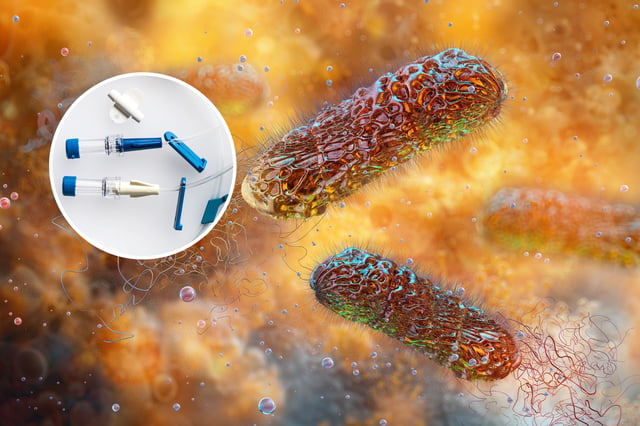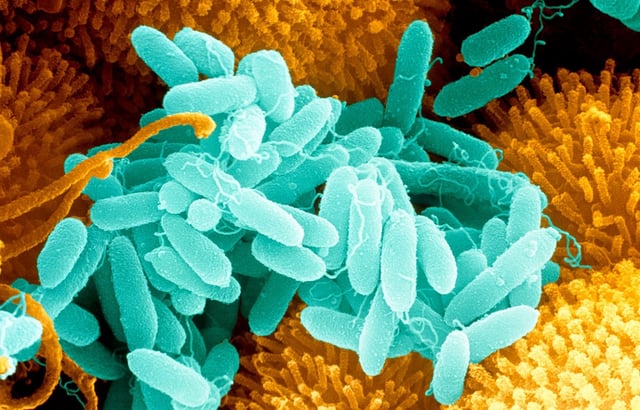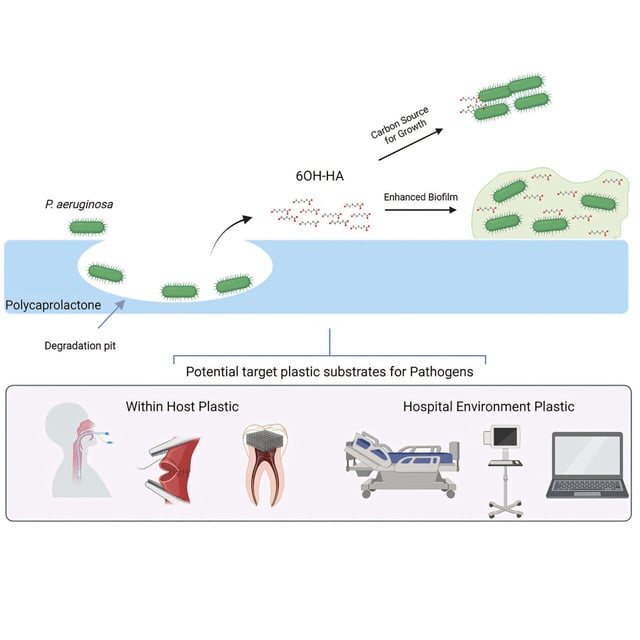Overview
- A study from Brunel University identified the Pap1 enzyme in Pseudomonas aeruginosa, which degrades polycaprolactone (PCL), a plastic used in medical devices like sutures and stents.
- The bacterium can use PCL as its sole carbon source, aiding its survival in hospital environments and within patients.
- Degraded plastic fragments enhance biofilm formation, making infections more resistant to antibiotics and harder to treat.
- Experiments in wax moth larvae showed increased virulence of P. aeruginosa when PCL implants were present, highlighting patient safety concerns.
- Experts urge a reevaluation of medical plastics and expanded screening for similar plastic-degrading enzymes in other pathogens.


